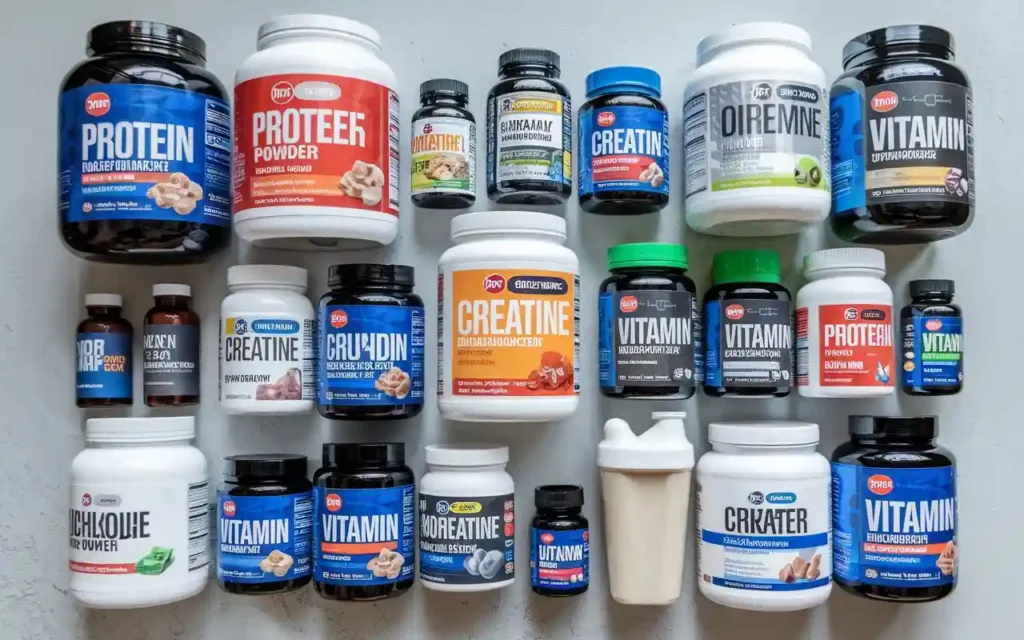How Can You Keep Your Muscles Healthy: A Comprehensive Guide
1. Introduction to Muscle Health
How can you keep your muscles healthy is a fundamental question for anyone looking to maintain an active and vibrant lifestyle. Healthy muscles not only enhance physical appearance but also play a crucial role in overall bodily functions, including movement, stability, and metabolism.
Understanding the principles of muscle health empowers you to make informed decisions about exercise, nutrition, and lifestyle choices that contribute to long-term well-being.
2. Importance of Regular Exercise

How can you keep your muscles healthy through regular exercise is a topic that encompasses various forms of physical activity. Engaging in consistent exercise routines helps in building muscle strength, endurance, and flexibility.
Types of Exercises for Muscle Health
- Strength Training: Involves lifting weights or using resistance bands to build muscle mass.
- Cardiovascular Exercises: Activities like running, cycling, and swimming improve overall endurance.
- Flexibility Exercises: Yoga and stretching enhance muscle flexibility and prevent injuries.
Creating an Effective Workout Plan
To maximize muscle health, incorporate a balanced mix of strength, cardio, and flexibility exercises into your weekly routine. Aim for at least 150 minutes of moderate-intensity aerobic activity and two days of muscle-strengthening activities per week.
3. Balanced Nutrition for Muscle Maintenance
How can you keep your muscles healthy through balanced nutrition involves consuming the right mix of macronutrients and micronutrients that support muscle growth and repair.
Essential Nutrients for Muscle Health
| Nutrient | Role in Muscle Health | Food Sources |
|---|---|---|
| Protein | Builds and repairs muscle tissues. | Chicken, fish, beans, lentils, tofu. |
| Carbohydrates | Provide energy for workouts and recovery. | Whole grains, fruits, vegetables. |
| Fats | Support hormone production and joint health. | Avocados, nuts, olive oil. |
| Vitamins & Minerals | Facilitate various biochemical processes in muscles. | Leafy greens, dairy products, nuts. |
Meal Planning Tips
- Include Protein in Every Meal: Helps in continuous muscle repair and growth.
- Stay Hydrated: Adequate water intake is essential for nutrient transport and muscle function.
- Balanced Macronutrients: Ensure a proper balance of proteins, carbohydrates, and fats.
4. The Role of Hydration in Muscle Health

How can you keep your muscles healthy through proper hydration is a critical aspect often overlooked. Water plays a vital role in muscle function, including contraction, relaxation, and nutrient transportation.
Benefits of Staying Hydrated
- Prevents Muscle Cramps: Adequate hydration reduces the risk of muscle spasms.
- Enhances Performance: Maintains optimal muscle function during workouts.
- Aids Recovery: Facilitates the removal of metabolic waste products post-exercise.
Hydration Tips
Drink at least 8 glasses of water daily, and increase intake during intense physical activity. Incorporate electrolyte-rich beverages if engaging in prolonged or high-intensity exercises.
5. Adequate Rest and Recovery

How can you keep your muscles healthy by ensuring adequate rest and recovery is fundamental for muscle repair and growth. Without sufficient rest, muscles cannot recover from the stresses of exercise, leading to fatigue and potential injury.
Importance of Sleep
- Muscle Repair: Deep sleep phases are crucial for muscle tissue recovery.
- Hormone Regulation: Sleep helps regulate hormones like testosterone and growth hormone, which are essential for muscle growth.
- Energy Restoration: Replenishes energy stores for the next day’s activities.
Active Recovery Techniques
Incorporate low-intensity activities such as walking, yoga, or stretching on rest days to promote blood flow and reduce muscle stiffness.
6. Proper Warm-Up and Cool-Down Routines
How can you keep your muscles healthy by implementing proper warm-up and cool-down routines cannot be overstated. These practices prepare your muscles for exercise and aid in recovery post-workout.
Warm-Up Strategies
- Dynamic Stretching: Incorporate movements that mimic the workout to increase blood flow.
- Light Cardio: Engage in activities like jogging or jumping jacks to elevate heart rate.
- Muscle Activation: Perform specific exercises to activate target muscle groups.
Cool-Down Techniques
After exercising, perform static stretches and low-intensity activities to gradually lower your heart rate and prevent muscle stiffness.
7. Strength Training Techniques
How can you keep your muscles healthy through effective strength training involves understanding and applying proper techniques to maximize muscle growth and prevent injuries.
Key Strength Training Principles
- Progressive Overload: Gradually increase the weight or resistance to challenge muscles.
- Proper Form: Maintain correct posture and technique to avoid injuries.
- Balanced Routine: Target all major muscle groups to ensure balanced development.
Popular Strength Training Exercises
- Squats: Targets the lower body, including quadriceps, hamstrings, and glutes.
- Deadlifts: Engages the back, legs, and core muscles.
- Bench Press: Focuses on the chest, shoulders, and triceps.
- Pull-Ups: Strengthens the upper back, biceps, and forearms.
8. Flexibility and Stretching for Muscle Health
How can you keep your muscles healthy by incorporating flexibility and stretching exercises is essential for maintaining muscle elasticity and preventing injuries.
Benefits of Flexibility Training
- Enhanced Range of Motion: Improves the ability to move joints freely.
- Injury Prevention: Reduces the risk of strains and sprains.
- Improved Posture: Helps in maintaining proper body alignment.
Effective Stretching Techniques
Include both dynamic stretches before workouts and static stretches after exercising. Examples include:
- Hamstring Stretch: Enhances flexibility in the back of the thigh.
- Shoulder Stretch: Improves mobility in the upper body.
- Quadriceps Stretch: Lengthens the front of the thigh muscles.
9. Preventing Muscle Injuries
How can you keep your muscles healthy by preventing injuries involves adopting strategies that minimize the risk of muscle strains, tears, and other related injuries.
Common Causes of Muscle Injuries
- Overuse: Repeated stress on muscles without adequate rest.
- Poor Technique: Incorrect form during exercises increases injury risk.
- Lack of Warm-Up: Inadequate preparation before intense physical activity.
Injury Prevention Strategies
Implement the following to reduce the likelihood of muscle injuries:
- Proper Warm-Up: Prepare muscles for activity.
- Use Correct Form: Ensure exercises are performed correctly.
- Gradual Progression: Increase intensity and volume slowly.
- Listen to Your Body: Recognize and respond to signs of fatigue or strain.
10. Supplements for Muscle Health

How can you keep your muscles healthy by incorporating supplements can provide additional support for muscle growth and recovery, but it’s essential to choose wisely.
Popular Muscle Health Supplements
- Protein Powder: Aids in muscle repair and growth.
- Creatine: Enhances strength and performance.
- BCAAs (Branched-Chain Amino Acids): Supports muscle recovery.
- Vitamin D: Important for muscle function and bone health.
Choosing the Right Supplements
Before adding supplements to your regimen, consider consulting with a healthcare professional to ensure they align with your health goals and needs.
11. Lifestyle Factors Affecting Muscle Health
How can you keep your muscles healthy by addressing various lifestyle factors is crucial for overall muscle maintenance and growth.
Stress Management
Chronic stress can lead to muscle tension and hinder recovery. Incorporate stress-reducing activities like meditation, deep breathing, and hobbies into your routine.
Healthy Habits
- Avoid Smoking: Smoking negatively impacts blood flow and muscle repair.
- Limit Alcohol Consumption: Excessive alcohol can impair muscle growth and recovery.
- Maintain a Healthy Weight: Prevents undue stress on muscles and joints.
12. Special Considerations for Different Age Groups
How can you keep your muscles healthy varies across different age groups, each with unique needs and challenges.
Muscle Health in Youth
Encourage regular physical activity and proper nutrition to support healthy muscle development during growth periods.
Muscle Health in Adults
Focus on maintaining muscle mass through consistent exercise and balanced diet to counteract natural muscle loss.
Muscle Health in Seniors
Prioritize low-impact exercises, flexibility, and strength training to preserve muscle mass and prevent age-related decline.
13. Conclusion
Understanding how can you keep your muscles healthy is essential for leading a balanced and active life. By integrating regular exercise, balanced nutrition, proper hydration, adequate rest, and mindful lifestyle choices, you can maintain optimal muscle health and overall well-being.
Remember to consult with healthcare professionals or fitness experts when making significant changes to your exercise or nutrition routines to ensure they align with your personal health goals.
14. References




